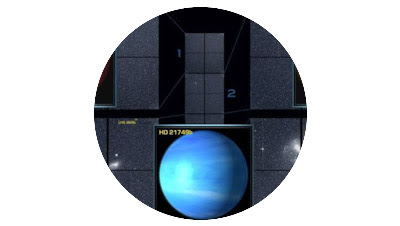NASA's most recent planet-chasing test has found another world outside our nearby planetary group, circling a small star 53 light years away.
This is the third new planet affirmed by the Transiting Exoplanet Survey Satellite (TESS) since its dispatch in April a year ago. The planet, named HD 21749b, circles a splendid, close-by small star around 53 light years away, in the heavenly body Reticulum, and seems to have the longest orbital time of the three planets so far distinguished by TESS.
Moderate voyage
HD 21749b voyages around its star in a moderately relaxed 36 days, contrasted with the two different planets — Pi Mensae b, a "super-Earth" with a 6.3-day circle, and LHS 3844b, a rough world that speeds around its star in only 11 hours.
Each of the three planets were found in the initial three months of TESS perceptions. "It's the coolest earth that we are aware of around a star this splendid," said Diana Dragomir, an analyst in the Massachusetts Institute of Technology (MIT), who drove the disclosure.
"We know a ton about environments of hot planets, but since it's elusive little planets that circle more remote from their stars, and are accordingly cooler, we haven't possessed the capacity to find out much about these littler, cooler planets. Be that as it may, here we were fortunate, and got this one, and would now be able to consider it in more detail," Ms. Dragomir said.
The planet is around multiple times the span of the earth, which places it in the class of a "sub-Neptune."
In any case, it is impossible that the planet is rough and in this way livable; it's more probable made of gas, of a thoughtful that is considerably more thick than the airs of either Neptune or Uranus.
"We figure this planet wouldn't be as vaporous as Neptune or Uranus, which are for the most part hydrogen and extremely puffy. The planet likely has a thickness of water, or a thick air," Ms. Dragomir said.







No comments:
Post a Comment